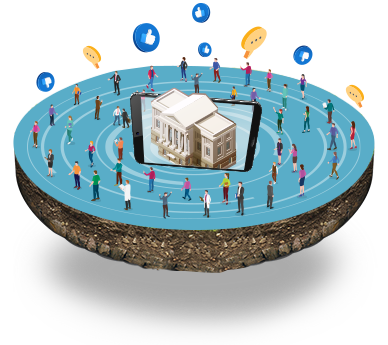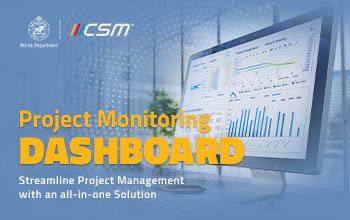Human Resource Management Systems (HRMS) have revolutionized workforce management across the globe, enabling organizations to streamline HR operations, enhance employee engagement, and drive productivity. In Africa, where businesses and governments rapidly embrace digital transformation, HRMS solutions are becoming a critical tool for managing human capital efficiently. Globally, the HRMS market is witnessing significant growth. According to a Fortune Business Insights report, the global Human Resource Management Software market was valued at $17.56 billion in 2022 and is projected to reach $33.57 billion by 2030, growing at a CAGR of 9.1%. A PwC study indicates that 74% of organizations worldwide have adopted cloud-based HRMS, reducing administrative workload by 40% and improving decision-making through real-time analytics.
The need for automated HR solutions in Africa is driven by the continent’s expanding workforce, labor law reforms, and the increasing adoption of digital technologies. Governments and enterprises across Africa are investing in HRMS solutions to tackle challenges such as payroll inefficiencies, compliance issues, and workforce management complexities. With countries like Nigeria, Kenya, South Africa, Gambia and Ghana leading the way in HR tech adoption, HRMS solutions are becoming indispensable for organizations seeking operational efficiency and workforce optimization.
.jpg)
The Role of HRMS in Transforming Workforce Management
An HRMS (Human Resource Management System) is a digital solution that integrates multiple HR functions, including recruitment, payroll processing, performance management, training, leave management, and employee self-service portals. HRMS solutions simplify HR operations and improve decision-making by leveraging cloud computing, AI-driven analytics, and automation.
Streamlining Payroll and Benefits Administration
Payroll processing in Africa has traditionally been complex and time-consuming11, particularly in countries with diverse tax regulations, multi-currency payroll requirements, and social security contributions. An HRMS automates payroll calculations, tax deductions, and benefits administration, ensuring accuracy, compliance, and timely salary disbursement. A Deloitte report highlights that organizations implementing payroll automation witness a 30% reduction in payroll errors and a 50% decrease in payroll processing time. In Africa, where many employees rely on mobile payment solutions like M-Pesa and Airtel Money, HRMS platforms increasingly integrate mobile payroll processing for seamless transactions.
Ensuring Compliance with Labor Laws and Regulations
Africa's labor laws are evolving, requiring organizations to adhere to strict employment regulations related to minimum wages, contract management, tax compliance, and social security contributions. HRMS solutions provide automated compliance tracking, real-time policy updates, and audit-ready reports, ensuring that organizations meet legal requirements without manual intervention. According to the International Labour Organization (ILO), over 60% of African businesses struggle with labor law compliance, leading to penalties and legal disputes. HRMS solutions help companies to stay compliant, mitigate risks, and foster a transparent work environment.
Enhancing Employee Engagement and Productivity
Employee engagement is a key factor in organizational success. A Gallup study found that companies with high employee engagement report 21% higher profitability and 17% higher productivity. HRMS platforms offer employee self-service portals, AI-driven feedback mechanisms, and real-time performance tracking, empowering employees and enhancing workplace satisfaction. By automating attendance tracking, leave management and performance evaluations, HRMS reduces administrative workload and enables HR professionals to focus on strategic workforce planning and talent development.
Improving Talent Acquisition and Retention
Africa’s growing workforce demands efficient recruitment and talent retention strategies. An HRMS with AI-powered recruitment tools enables organizations to screen resumes, schedule interviews, and assess candidate suitability based on predefined criteria. A LinkedIn Talent Solutions report states that companies using AI-driven recruitment experience a 67% faster hiring process and a 50% improvement in talent retention. In Africa, where youth employment and skill development are key priorities, HRMS solutions help businesses attract, onboard, and retain top talent more effectively.
Data-Driven Decision-Making and Workforce Analytics
Modern HRMS solutions come with advanced analytics and reporting tools that provide insights into employee performance, attrition rates, workforce productivity, and HR trends. With real-time dashboards and AI-driven analytics, HR managers can make data-backed decisions to optimize workforce strategies. A McKinsey report highlights that organizations leveraging HR analytics report a 30% increase in workforce efficiency and a 25% reduction in HR operational costs. In Africa, HRMS solutions enable businesses to predict workforce trends, identify skill gaps, and implement targeted training programs to enhance employee development.
.jpg)
Problems in HRMS Adoption in Africa
Despite its benefits, HRMS adoption in Africa faces several challenges, including:
- Digital Infrastructure Limitations: Many African regions still face internet connectivity issues and limited access to cloud-based services. Organizations investing in HRMS must ensure robust IT infrastructure and reliable digital access.
- Resistance to Change and Digital Transformation: HR professionals and employees accustomed to traditional HR practices may resist transitioning to fully automated HR systems. Training programs and change management strategies are essential to encourage adoption.
- Cost Constraints for Small and Medium Enterprises (SMEs): While large organizations can afford enterprise-grade HRMS solutions, many SMEs struggle with the high cost of implementation. Affordable, cloud-based HRMS solutions tailored for African businesses are essential for broader adoption.
- Data Security and Privacy Concerns: With growing concerns over cybersecurity threats and data privacy, organizations must ensure compliance with local data protection laws and invest in secure cloud-based HRMS solutions to protect sensitive employee information.
Conclusion: The Future of HRMS in Africa
As Africa continues its digital transformation journey, HRMS solutions will play a crucial role in shaping the future of workforce management. By embracing automation, AI-driven analytics, and cloud-based HR solutions, businesses and governments can enhance efficiency, improve compliance, and create a more productive workforce.
With leading technology providers like CSM Technologies driving HRMS innovation in Africa, the continent is set to witness a paradigm shift in human resource management, enabling organizations to thrive in the digital era. CSM Tech has successfully implemented a state-of-the-art Human Resource Management Information System (HRMIS) for government and enterprise clients in Gambia.


























































We will verify and publish your comment soon.